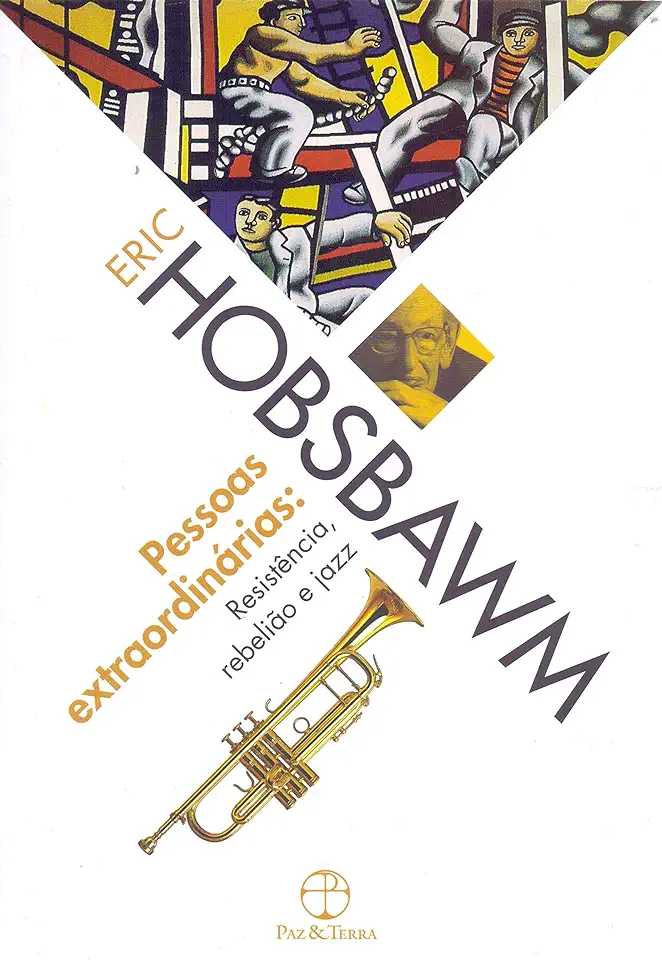
Uncommon People - Resistance, Rebellion, and Jazz - Eric Hobsbawm
Uncommon People: Resistance, Rebellion, and Jazz by Eric Hobsbawm
In his seminal work, "Uncommon People: Resistance, Rebellion, and Jazz," Eric Hobsbawm delves into the lives of extraordinary individuals who dared to challenge the status quo and shape the course of history. Through a captivating narrative that spans centuries and continents, Hobsbawm introduces us to a diverse cast of characters, from bandits and pirates to social revolutionaries and jazz musicians, who defied conventions and fought for a better world.
Bandits, Outlaws, and Social Bandits
Hobsbawm begins his exploration with the fascinating world of bandits and outlaws, figures often romanticized in literature and folklore. He argues that these individuals were not mere criminals but often represented a form of social protest against oppressive systems. From the Robin Hood-like figures of pre-industrial Europe to the Mexican revolutionaries of the early 20th century, Hobsbawm reveals how bandits and outlaws embodied the spirit of resistance and challenged the established order.
Primitive Rebels
Moving beyond the realm of individual resistance, Hobsbawm examines the phenomenon of primitive rebellions, mass uprisings driven by religious fervor, millenarian beliefs, or a desire for social justice. He analyzes cases such as the English Peasants' Revolt of 1381, the Taiping Rebellion in China, and the Mahdist War in Sudan, shedding light on the motivations and dynamics of these large-scale revolts.
Social Revolutionaries
Hobsbawm's work also delves into the lives and ideologies of social revolutionaries, those who sought to transform society through organized political movements. From the early utopian socialists and anarchists of the 19th century to the communist revolutions of the 20th century, Hobsbawm provides a nuanced understanding of the intellectual and political currents that shaped these revolutionary movements.
Jazz: A Revolutionary Art Form
In a surprising yet insightful turn, Hobsbawm dedicates a significant portion of his book to the world of jazz music. He argues that jazz, with its improvisational nature, rejection of conventions, and emphasis on individual expression, embodied a revolutionary spirit that paralleled the social and political upheavals of the 20th century. Hobsbawm explores the lives of jazz legends like Louis Armstrong, Duke Ellington, and Miles Davis, demonstrating how their music challenged racial barriers and reflected the broader cultural transformations of the era.
Conclusion: The Uncommon Thread
Throughout "Uncommon People," Hobsbawm weaves together these diverse threads of resistance, rebellion, and jazz, revealing the common spirit that unites these seemingly disparate phenomena. He argues that these uncommon people, whether bandits, revolutionaries, or jazz musicians, shared a profound desire for freedom, justice, and a better world. Their stories serve as a testament to the human capacity for resilience, creativity, and the pursuit of a more just and equitable society.
Why You Should Read "Uncommon People"
"Uncommon People" is a must-read for anyone interested in history, social movements, and the human spirit. Hobsbawm's masterful storytelling and deep insights make this book not only informative but also immensely enjoyable. Through the lives of these extraordinary individuals, you will gain a new perspective on the forces that shape history and the power of individuals to challenge and change the world.
Purchase Your Copy Today!
Don't miss out on this opportunity to delve into the lives of uncommon people who dared to dream of a better world. Order your copy of "Uncommon People: Resistance, Rebellion, and Jazz" today and embark on a journey that will inspire, challenge, and leave a lasting impact on your understanding of history and human nature.